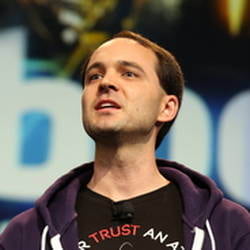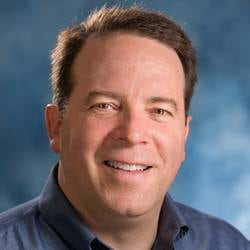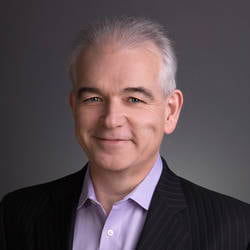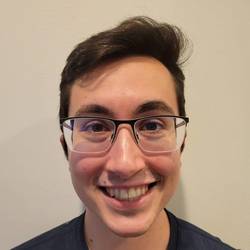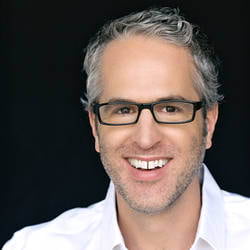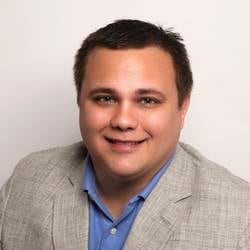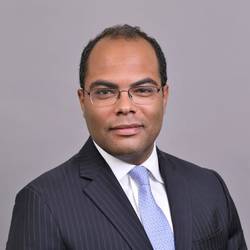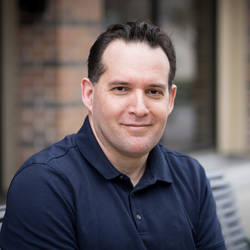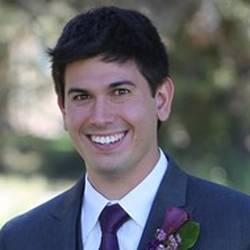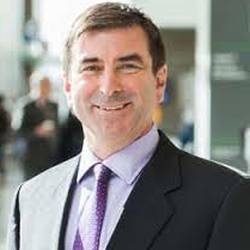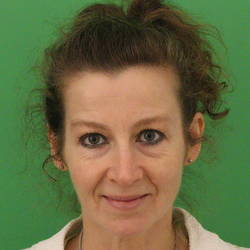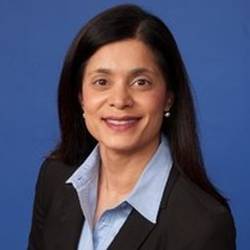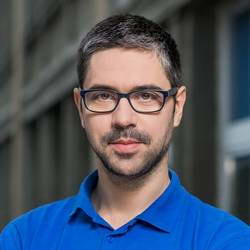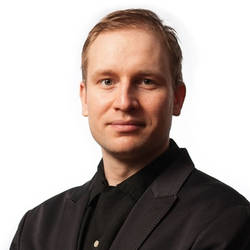Home Pages: PAW Business | PAW Financial | PAW Healthcare | PAW Industry 4.0 | PAW Climate | Deep Learning World
Agenda
Predictive Analytics World for Healthcare 2022
June 19-24, 2022 l Caesars Palace, Las Vegas
To view the full 7-track agenda for the six co-located conferences at Machine Learning Week click here or for the individual conference agendas here: PAW Business, PAW Financial, PAW Healthcare, PAW Industry 4.0, PAW Climate or Deep Learning World.
Workshops - Sunday, June 19th, 2022
Full-day: 8:30am – 4:30pm.
Python leads as a top machine learning solution – thanks largely to its extensive battery of powerful open source machine learning libraries. It’s also one of the most important, powerful programming languages in general.
Workshops - Monday, June 20th, 2022
Full-Day 8:30 am - 4:30pm
This one-day session surveys standard and advanced methods for predictive modeling (aka machine learning).
Full-Day 8:30 am - 4:30pm
Machine learning improves operations only when its predictive models are deployed, integrated and acted upon – that is, only when you operationalize it.
Full-Day 8:30 am - 4:30pm
This one-day introductory workshop dives deep. You will explore deep neural classification, LSTM time series analysis, convolutional image classification, advanced data clustering, bandit algorithms, and reinforcement learning.
Predictive Analytics World for Healthcare - Las Vegas - Day 1 - Tuesday, June 21st, 2022
Nvidia's Siddha Ganju has gained a unique perspective on machine learning's cross-sector deployment. In her current role, she work's on a range of applications, from self-driving vehicles to healthcare, and she previously led NASA's Long-Period Comets team, applying ML to develop meteor detectors. Deep learning impacts the masses, so it demands mass, interdisciplinary collaboration. In this keynote session, Siddha will describe the very particular interdisciplinary effort -- driven by established joint directives -- required to successfully deploy deep learning across a variety of domains, including climate, planetary defense, healthcare, and self-driving cars.The format of this session will be a "fireside chat," with PAW Founder Eric Siegel interviewing Siddha in order to dig deep into the lessons she's learned.
Machine learning and robotics are dramatically shifting our industrial capabilities and are opening new doors to our functional understanding and ways to support the natural world. Together, these advances can enable something far beyond simply limiting our damage to the planet -- they create the possibility of building a new relationship to nature wherein our industrial footprint can be radically reduced and nature's capability to support itself and all life on Earth (including us!) can be amplified.
As the world of Machine Learning (ML) has advanced, the biggest challenge that still faces data science organizations is the need for insightful, valuable, predictive attributes, aka “features” that can be applied to ML models. The process of building features is so tedious and costly that the “feature store” was invented to make re-building features a thing of the past.
The problem is that traditional means of building features to feed feature stores have been manual, labor-intensive efforts that involve data engineers, subject matter experts, data scientists, and your IT department. But what if there was a faster and more scalable way? Join dotData’s VP of Data Science, Dr. Aaron Cheng as he presents the concept of the automated Feature Factory and see how your organization can take a process that today takes months, and do it in a few days.
Blood, platelets and other transferable fluids are critical for patient health. At PAW-2020 we described OneBlood’s use of analytics to optimize blood donor recruitment, to forecast hospital needs and to manage the blood supply chain during the Covid pandemic. Now we provide an update with a focus on platelets. We built and deployed three predictive models. Marketing campaigns use these models, and dashboards enable campaign tracking and iterative improvements. Inventory monitoring and hospital demand forecasting are the remaining solution components. With all of these components working together, we have dramatically increased the number of platelet donors, stabilized inventory to match demand, and dramatically increased platelet availability in Florida hospitals.
In January 2020, just after the first case of COVID-19 was discovered in the US, NYU Computer Science Prof. Anasse Bari led with infectious disease medical doctor Prof. Megan Coffee a multidisciplinary team of AI and medicine experts both in the US and China to develop the first COVID-19 Clinical Severity Predictive Tool. The tool aimed to help medical doctors triage and provide care effectively during the incoming surges of cases by using algorithms that can predict which mildly ill patients were likely to become severely ill. In July 2021, the team developed another tool named COVID-19 Early-alerts Signals built on a digital epidemiology framework that analyzes alternative data sources to discover predictors of the pandemic curve, which could supplement traditional predictive models and inform early warning systems and public health policies. The research finds that online google searches can predict major regional increases and decreases in COVID-19 cases. After the vaccine rollout, Prof. Bari and Coffee led a team that developed a Vaccine Hesitancy Analytics Tool which is a real-time big data analytics cloud application to track misinformation and extract themes and topics related to vaccine hesitancy. The platform was based on natural language processing and sentiment analysis predictive algorithms. The tool was deployed using Amazon Web Services.
In this talk Prof. Bari will outline the experimental research results from the three tools his team developed: (1) COVID-19 Clinical Severity Predictor, (2) Pandemics Early-alert Signals Tool based on alternative data, and (3) Vaccine Hesitancy Analytics Tool. This talk will also highlight the analytics lessons learned and how we can better prepare for future pandemics using predictive analytics and algorithms.
* Prof. Anasse Bari led these projects and teams with medical doctor Prof. Megan Coffee, Dr. Matthias Heymann and other researchers from the NYU Courant Institute of Mathematical Sciences, the NYU Computer Science Department and the NYU Grossman School of Medicine.
New advances in natural language processing have recently started moving from research to real-world production implementations. The session reviews recent case studies in several of the USA's largest healthcare systems and pharmaceuticals that applied novel research in deep learning and transfer learning to better answer medical questions, enable real-world data, predict patient outcomes and population risk, and anonymize data at scale. This session is intended for people looking to understand what it possible right now - and what are the lessons learned from the early adopters.
As healthcare produces more clinical and research data than ever before, there is a need for AI to efficiently use and reuse the data and to reduce the workload on our practitioners. Yet, AI development in healthcare has not seen widespread adoption, and one of the biggest bottlenecks is that the data is not AI ready. Join Ajun Prakash, Snorkel AI’s Director of Solutions, to learn how Snorkel is unblocking the data challenge, and helping payors, providers, and pharma accelerate their adoption of AI.
Building and deploying predictive models for the COVID-19 pandemic was challenging and most of the models have not performed as well as hoped. I cover five lessons learned from analyzing data by the Pandemic Response Commons, a not-for-profit that collects, analyzes and shares COVID-19 related data in the Chicago region. I also look at the challenges of understanding COVID-19 health disparities and present the results of models showing the unequal impact of COVID-19 on different populations. We conclude by discussing how regions can prepare for the future by putting in place persistent infrastructure for regional data collection, analysis and sharing.
Timely capacity planning of cardiothoracic ICU relies on early doctor’s recommendations on the type of bed a patient will need after surgery. A predictive model might be used to potentially help doctors make more accurate recommendations. Using the data of around 1500 cardiothoracic surgeries we built a gradient boosting model which predicts whether a patient will need a PACU (i.e. fast track trajectory) or an ICU bed with AUC=0.8 (precision=0.59, recall=0.84). In a hybrid scenario where the recommendation for PACU trajectory is made combining doctor’s recommendations and model’s predictions, the number of patients misclassified to PACU would be 1-in-10, which would be a significant improvement over the current 1-in-5.
It is difficult to estimate whether any individual patient will refill their prescription, even if we provide them a scheduled reminder. Inferring whether properties of that reminder are important, such as when it is delivered, is more difficult. Bayesian multi-factor models (also known as hierarchical or random effects models) offer a robust way to model this problem, accounting for differences across patients and explicitly accounting for model uncertainties. Fitting robust Bayesian models can be difficult in practice, but in the last few years work has been devoted to "Bayesian workflows," which offer principled approaches to building such models. In this talk, we will use one recent project, in which we built a model to understand the impact of reminder-refill timing, to discuss key elements of the workflow and how Bayesian techniques provide us with robust models that are able to quantify the uncertainties inherent in statistical inference.
Predictive Analytics World for Healthcare - Las Vegas - Day 2 - Wednesday, June 22nd, 2022
In order for predictive analytics to have the most impact possible on patient care, we need to be able to focus on the specific population that is being treated. However, to prevent every organization from solving the same problem, we also need to create predictive analytics that generalize well. This tension drives many decisions in the model development process, from how we gather and analyze data, to how we support healthcare organizations that are deploying predictive models. We will discuss our approach to developing and deploying machine learning solutions with these two goals in mind.
This unique expert panel will provide a balanced and international perspective on where data science is heading within the healthcare industry.
Long-term health consequences of COVID-19 are symptoms that continue weeks or months after first diagnoses. Symptoms span respiratory, neurological, psychological, and cardiac problems and range from mild to debilitating. Little is known about the risk factors contributing to long COVID, whether vaccines play a role or the best treatment options. UnitedHealth Group data represents millions of COVID-19 patients – some fully recovered and others that suffer from continued health consequences. Machine learning provides the opportunity to characterize these risk factors and predict probability that future disease will occur.
A key to meaningfully and sustainably accelerating patient flow, improving quality, and saving caregiver time, is having the ability to spot situations and risks early, so caregivers and expediters can intervene in the moment. Real-time, contextual information that is simple to digest and easy to access, is the currency with which to make this happen. By combining clinical expertise, real-time and predictive analytics, and pre-defined action sets, Humber River Hospital in Toronto, Canada, is unlocking capacity, improving protocol compliance and reducing patients sent to ICU, while at the same time improving care team communication and reducing caregiver stress.
OSF Healthcare’s Advanced Analytics team is focused on helping our organization find the best fit data science solutions to serve our patients and mission partners. Best fit solutions may be internally developed, supplied from an existing platform, come through one of our innovation partnerships, flow in from research partnerships or be purchased from a traditional analytics vendor. As a part of our intake governance, we leverage close partnerships with multiple other areas of the business to ensure we’re selecting initial solutions that best meet our needs. We also work to continually keep up-to-date on new offerings so we can actively re-evaluate existing solution performance, adjusting approach as needed. In this talk, Dongsul will provide a high level description of Advanced Analytics’ intake governance approach and then focus specifically on three use cases: Advanced Analytics partnering with a researcher to implement a mortality model into production, model performance comparison resulting in a recommendation to continue internally developed solution & model comparison resulting in a recommendation to use a platform supplied solution.
OSF Healthcare has been building and deploying predictive models into operational workflows for more than 10 years. This talk will provide a brief overview of the various methods successfully used to move models into production.
Effective capacity management for surgical departments includes models for prediction of surgery duration, ICU-bed type and length-of-stay. We used deidentified data from 3,000 cardio-thoracic surgeries to develop and validate predictive models of surgery duration that are based on random forest, extreme gradient boosting and linear regression. The ensembled predictive model of acute cardio-thoracic surgery duration reduced the number of surgeries “behind-the-schedule” by 28% (from 60% to 32%) and boosted the surgery “on-time” by 15% (from 30% to 45%). Surgery planners could benefit from the predictive models by creating an optimized surgery schedule as a prerequisite to effective capacity management and improved patient and staff experience.
We explored the feasibility of deep learning algorithms to improve the accuracy of predicting daily emergency hospital visits by tracking their spatiotemporal association with PM concentrations. We compared predictive accuracy of the models based on PM datasets from a single but more accurate air monitoring station in each district and multiple but less accurate monitoring sites within a district in Seoul, South Korea. We used MLP (multilayer perceptron) to integrate PM data from multiple locations and then LSTM (long short-term memory) models to incorporate the intrinsic temporal PM trends into the learning process. The results reveal evidence that predictive accuracy is improved from 1.67 to 0.79 in RMSE when spatial variations of air pollutants from multi-point stations are incorporated in the algorithm as a 9-day time window. The findings suggest guidelines on how environmental and health policymakers can arrange limited resources for emergency care and design ambient air monitoring and prevention strategies.
The ultrasound examination is one of the most common techniques of medical imaging. FOLLISCAN is an analytical and predictive system based on interpretable deep learning algorithms to support healthcare practitioners in ultrasound ovaries diagnostics - antral follicles examination. The counting of follicles is of major importance, e.g., it helps estimate the ovarian reserve. Moreover, a large number of antral follicles indicates polycystic ovarian morphology.
FOLLISCAN is designed for fertility clinics, diagnostic centers and, hospitals and will respond to their well-identified need, i.e. time and cost savings - through wider access to ultrasound diagnostics to make better and more informed clinical decisions. The results of the project address the need to perform ultrasound examinations in a faster, easier, more objective and accurate manner.
In this talk, we will describe the process of building this solution and show the most important issues for creating a solution based on deep learning.
FOLLISCAN is currently tested and implemented in all INVICTA fertility clinics across Poland.
Workshops - Thursday, June 23rd, 2022
Full-Day 8:30 am - 4:30pm
This one-day session reveals the subtle mistakes analytics practitioners often make when facing a new challenge (the “deadly dozen”), and clearly explains the advanced methods seasoned experts use to avoid those pitfalls and build accurate and reliable models.
Full-Day 8:30 am - 4:30pm
This one day workshop reviews major big data success stories that have transformed businesses and created new markets.
Full-Day 8:30 am - 4:30pm
This workshop dives into the key ensemble approaches, including Bagging, Random Forests, and Stochastic Gradient Boosting.
3 hour workshop: 5:30-8:30pm
This 3 hour workshop launches your tenure as a user of R, the well-known open-source platform for data analysis.
Workshops - Friday, June 24th, 2022
Full-Day 8:30 am - 4:30pm
Gain experience driving R for predictive modeling across real examples and data sets. Survey the pertinent modeling packages.

